Addition skills Normal Numbers Worksheets for Ages 3-7
5 filtered results
-
From - To
Enhance your child's early math skills with our Addition Skills Normal Numbers Worksheets, designed specifically for ages 3-7. These engaging worksheets introduce young learners to the fundamentals of addition in a fun and interactive way. Each activity is tailored to promote number recognition, counting, and basic addition concepts, using colorful illustrations and age-appropriate exercises. Perfect for parents and educators alike, our resources not only support classroom learning but also encourage at-home practice. Foster your child’s confidence in math with these easy-to-follow worksheets that make mastering addition a joyful experience! Start their mathematical journey today with our exciting materials.
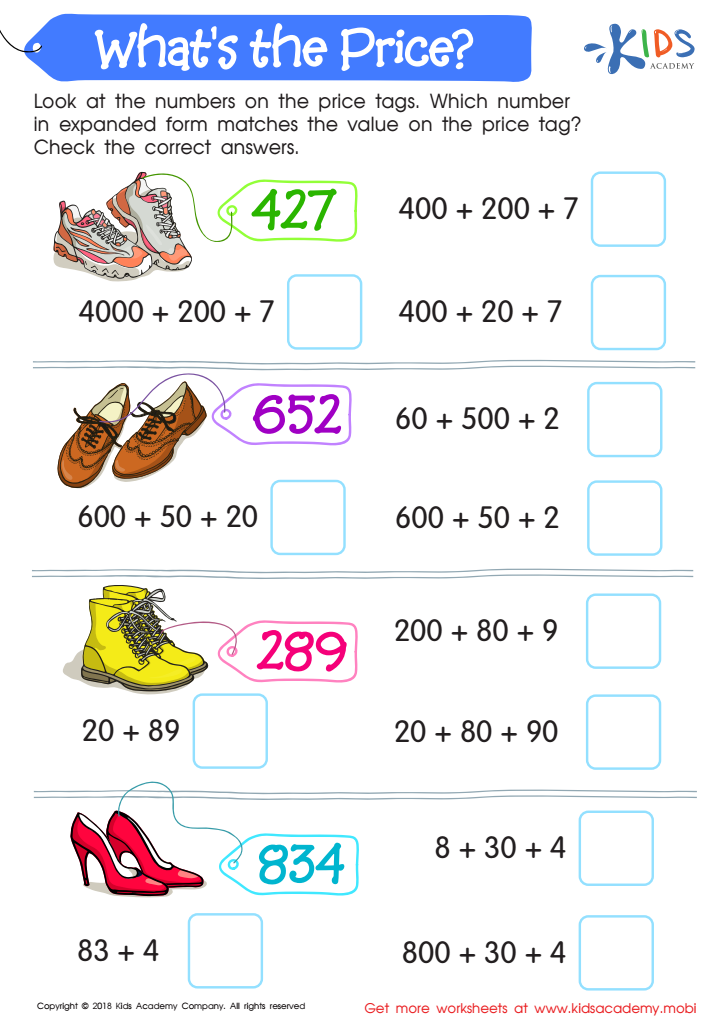

What's the Price? Worksheet
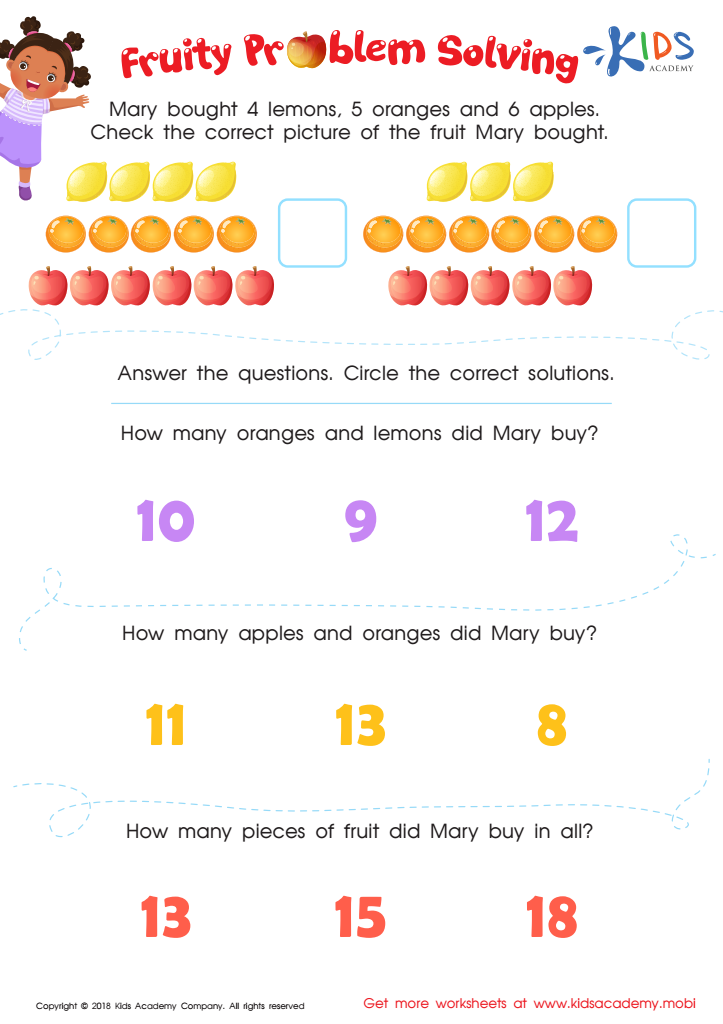

Fruity Problem Solving Worksheet
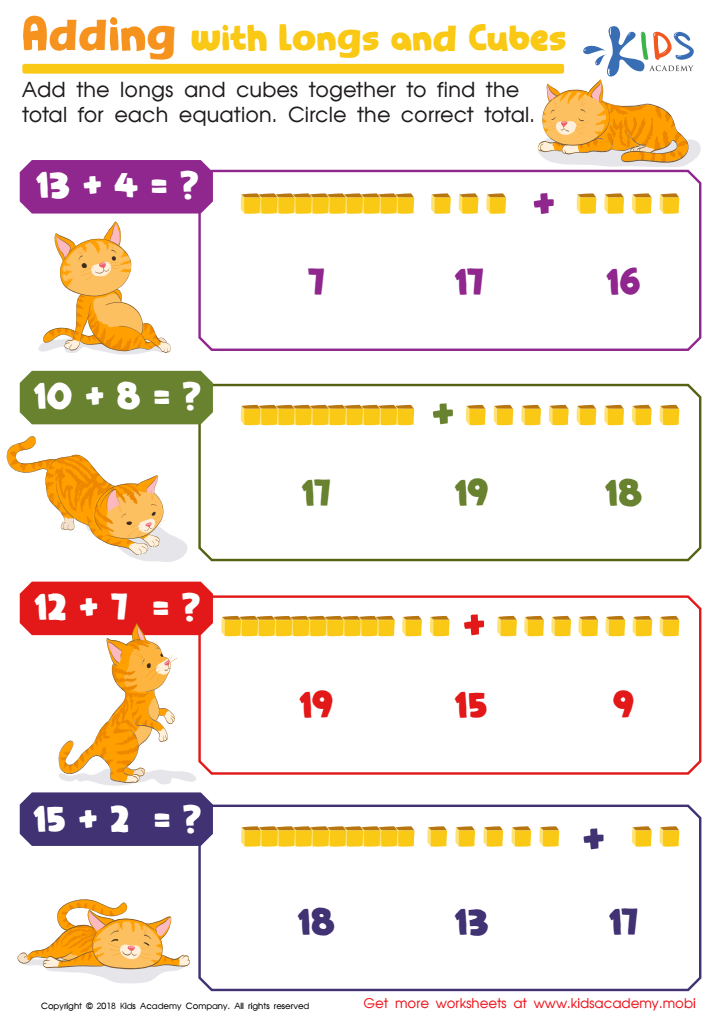

Adding With Longs and Cubes Worksheet
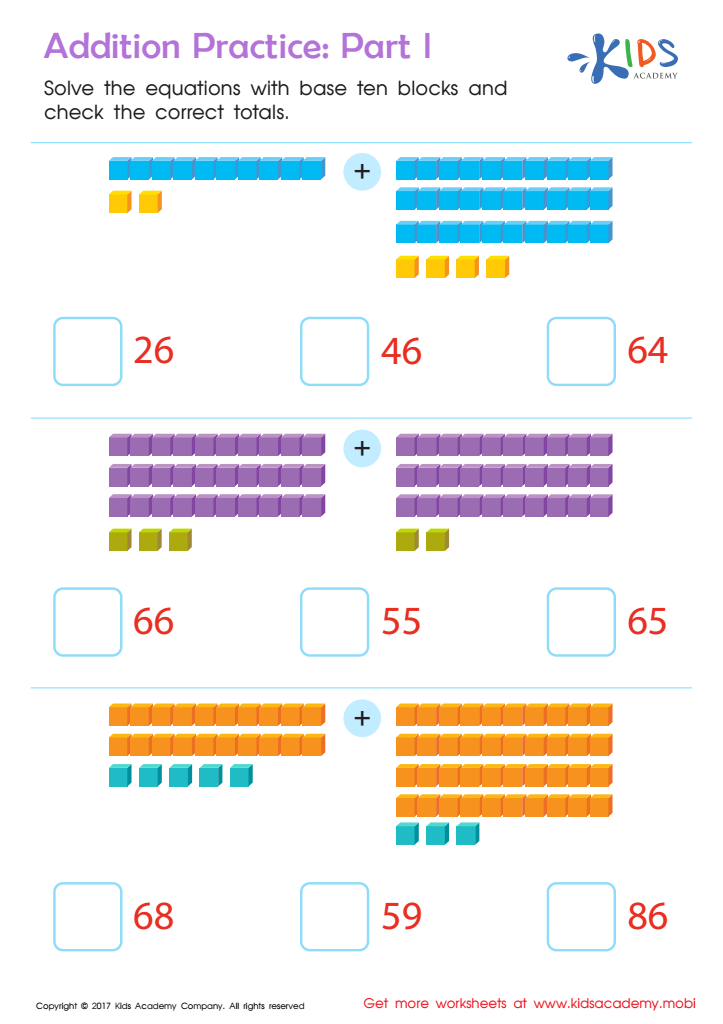

Addition Practice Sheet: Part 1
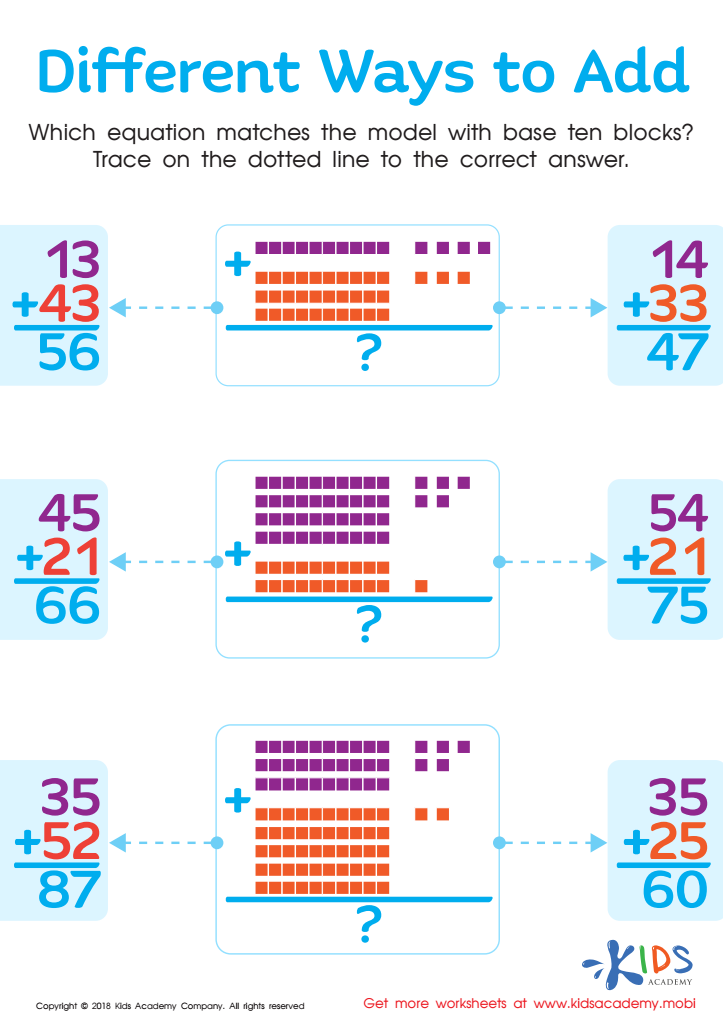

Different Ways to Add Worksheet
Addition skills with normal numbers (whole numbers) are fundamental to early childhood development and lay the groundwork for essential mathematical understanding. For children ages 3 to 7, these skills enable not only basic arithmetic but also foster critical thinking skills and problem-solving abilities that will benefit them throughout their academic journey and beyond.
Parents and teachers should care because early exposure to addition helps children develop number sense, which is the ability to understand and work with numbers confidently. Through playful activities like counting objects, using counters, or playing math games, children can engage deeply with concepts of quantity and relationships between numbers. These activities promote cognitive development and are often integrated into daily routines, making learning natural and enjoyable.
Moreover, mastering addition lays a strong foundation for more complex mathematical concepts in later years, such as subtraction, multiplication, and division. It also instills a positive attitude towards mathematics, reducing math anxiety and discouraging negative associations. By nurturing these skills early on, parents and teachers equip children not only with mathematical competence but also the confidence to tackle future challenges, ultimately enhancing their overall academic achievement and equipping them for lifelong learning.
 Assign to My Students
Assign to My Students





















